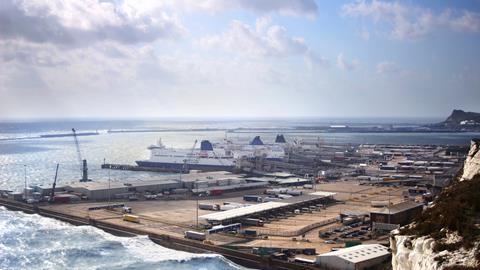Fresh Produce Consortium warns that new fixed charges on imports of plants and fresh produce will not be manageable for many businesses
The FPC has hit out at the government for introducing new charges on imports that “threaten to cripple” SMEs in the fresh produce and plant sectors.
The common user charge (CUC) is set to add millions in extra costs to the industry, while unnecessarily driving up fruit and vegetable prices, the industry body warned.
The CUC is being introduced as part of post-Brexit border controls, and applies to imports from all countries.
The FPC predicts it will add £200 million in costs across the fresh produce supply chain. The organisation described the move as “a crippling blow to a sector already grappling with unprecedented challenges”.
“This is simply not a manageable cost for our members,” said FPC CEO Nigel Jenney.
“These exorbitant charges imposed by our own government represent a direct tax on businesses. It’s a move that will undoubtedly shatter supply chain confidence and is already encouraging EU exporters to reconsider their commitment to supply the UK market.”
The CUC rates for plants and fresh produce have been set as follows:
| Commodity type | Imports | Transits |
|---|---|---|
| Low-risk plants and plant products | no common user charge | no common user charge |
| Medium-risk plants and plant products | £29 | no common user charge |
| High-risk plants and plant products | £29 | no common user charge |
The CUC will apply to each commodity line in a common health entry document (CHED). It will apply to separate commodity lines even if they share the same commodity code.
The maximum charge for one CHED will be limited to five commodity lines, even if there are more than five commodity lines present in the CHED.
This means medium and high-risk CHEDs will be capped at £145. VAT will not be added, and Defra will review and update rates annually.
The government has attempted to downplay the impact, arguing that consumers will see a negligible increase in prices.
But according to the FPC, importers and retailers warn of “cascading delays, disruptions, and spiralling costs that will inevitably be passed on to hard-pressed shoppers”.
“The CUC system is particularly devastating for SMEs,” Jenney said. “While fees are now capped, they remain substantial – £145 for every consignment arriving in the UK via the Port of Dover or Eurotunnel.
“This might not seem like much, but with only a small number of consignments actually inspected, the [actual] cost per inspection balloons to a ludicrous £5k.”
The FPC instead wants to see “industry-managed solutions”, which it argues would offer a more efficient service.
But the adoption and development of assured operator status, allowing responsible companies to manage their own inspections, has yet to begin.
Jenney concluded: “Ultimately, it’s essential the UK remains a destination of choice for international exporters to complement our fantastic homegrown fresh produce and to offer the choice and availability we all demand.
“The government’s poorly considered border solution puts this in severe jeopardy or, at best, drives avoidable food inflation.
“These insane charges are an attack on those working tirelessly to feed and flower our great nation. The government seems hell-bent on punishing businesses that are the backbone of our economy and our health.”




